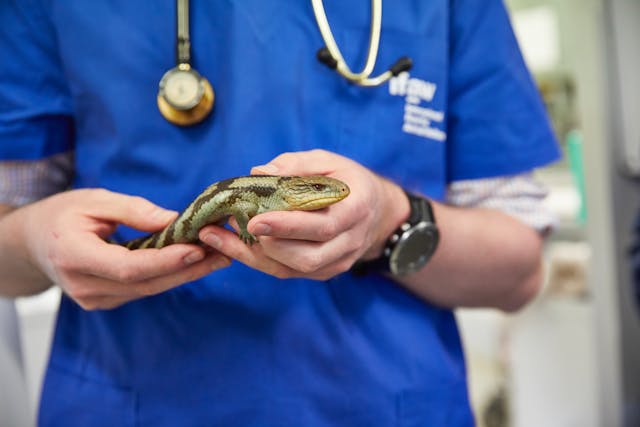Move to UK to work as a vet
If you’re thinking about moving to the UK to become a vet, check out our blog post —> FREE exercises at the bottom <—
Moving to the UK as a veterinarian is an exciting opportunity. If you’re an international vet, passing the Occupational English Test (OET) for Veterinary Science is key to securing registration and employment. Here’s a concise guide to help you navigate the process.
1. Understand UK Veterinary Licensing
o practice in the UK, you must register with the Royal College of Veterinary Surgeons (RCVS):
• Accredited Degree Holders: May qualify for automatic registration.
• Non-Accredited Degree Holders: Must pass the RCVS Statutory Exam.
• EU/EEA Vets: Check post-Brexit regulations with RCVS.
2. Why Take the OET for Veterinary Science?
Unlike general English tests, the OET Veterinary exam focuses on veterinary-specific communication. A strong OET score helps:
• Meet RCVS English language requirements.
• Enhance client and colleague communication.
• Strengthen job and visa applications.
3. Preparing for the OET Veterinary Exam
a) Test Structure
The exam includes:
Listening: Veterinary consultations and lectures.
Reading: Veterinary-related texts.
Writing: Case notes and referral letters.
Speaking: Client consultations.
b) Study Smart
Join an OET prep course with practice tests.
Read veterinary journals and listen to English veterinary podcasts.
Practice case studies and role-play client interactions.

4. Apply for a UK Work Visa
Once you pass the OET and register with the RCVS, apply for a Skilled Worker Visa. Requirements include:
A job offer from a UK employer.
Proof of English proficiency (OET accepted by some employers).
RCVS registration.
5. Find Veterinary Jobs in the UK
With high demand for vets, explore opportunities by:
Checking RCVS-accredited job boards.
Networking with UK-based professionals.
Contacting veterinary recruitment agencies such as Veterinary Talent
FREE EXERCISE
What would you diagnose on the evidence of these symptoms?
Pet – 7 tear-old Persian feline cat, neutered
Symptoms – vomiting, lethargy, anorexia, polydipsia, halitosis
General status – temperature 38C pulse – 180/min respiratory rate 16/min dehydration 8% generalised muscle weakness systolic blood pressure – 180mmhg
Answer key – possible renal failure

